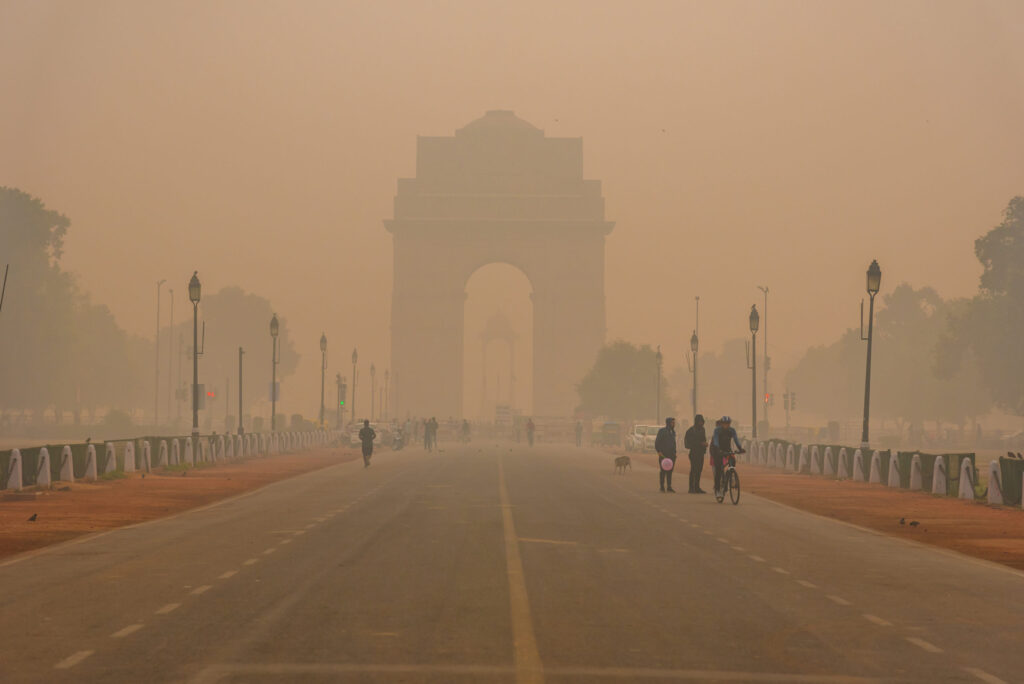Vox misses major factor in piece decrying pollution
February 21, 2022
Vox pubilshed a report on pollution that misses the most important point out it – the cure to pollution is money. This is something that economists have been saying for a century now, and it’s something we might hope people have caught up with by now.
Vox is quite right to say that that air in Delhi – one of their examples – almost certainly does knock a few years off the average lifespan. But the answer is not, as they say, “[c]ultivating public demand for clean air by warning people about its health risks can also drive action by governments and individuals across countries. “
That entirely misunderstands the problem.
The truth is in this that they do say:
“And that’s the crux of the problem. Since the fuel sources that produce air pollution also provide necessities such as electricity, vehicles, factory-made goods, and heating, policymakers face tough decisions on how to deal with air pollution-related health concerns while not eroding well-being in other ways. The good news is that many countries that have undergone the same economic transition in the past have eventually succeeded in curbing the worst of their air pollution. And so could the affected countries today — with the right set of policies. “
Here’s the truth you need to know. India today is poorer than the United States has been for more than a century. No, really, today India is poorer than the U.S. was in 1880. When American cities were also stinking messes. The thing that economists keep pointing out is the “Environmental Kuznets Curve”. What they mean is that poor people will put up with vast amounts of pollution because that’s the price of getting the basics in life. Why worry about dying 5 years younger from air pollution if you need the factory smoke to earn lunch so you don’t die of hunger tomorrow?
But once a people and place get richer then some of that extra income is willingly spent on having a cleaner environment and a longer life. This is why our big cities are pretty clean by historical standards. Those fogs in the movies of “Old London Town” were real and killed tens of thousands of people right into the 1950s. Today the air in that city is cleaner than it has been since 1306 when the first shipload of coal arrived. Because richer people will heat by gas, or electricity, or insulate, instead of the cheaper burning coal on open fires.
Vox is quite right that pollution comes from folk doing things and getting richer. But that’s the very solution to that pollution, the pollution itself. As people get to a certain level of richness – the usual guess is about 20% richer than India is right now, so a few years’ but not much growth from now – then they quite happily switch over to using some of their higher incomes to do things the more expensive, less polluting ways.
Vox makes great play of its mission to “explain the news” and they’re ranked at number 90 in news and media outlets. It gains nearly 25 million page views a month and has a substantial YouTube and social media presence too. The thing is, if you’re to explain the news then it makes a certain sense to actually explain that news. Much of the technical detail in this report on air pollution is very good indeed but they’ve entirely missed the main point.
It’s not about the right set of policies to reduce pollution at all. What’s needed to do that is well known. It’s getting people rich enough that they’re willing to pay the price that matters. Fortunately, we also know how to do that. Carry on doing what we’re doing and every time a people gets about as rich as the U.S. was in, say, about 1920, pollution starts to go down. Not exactly, not precisely that number, but it is rich people who are willing to spend on a clean environment. So the task isn’t to convince people, it’s to allow them to get rich enough to be convinced.
